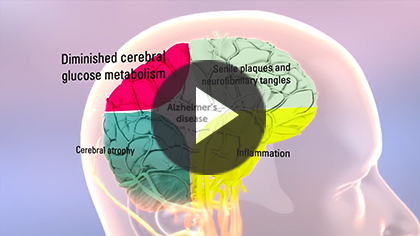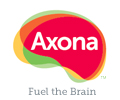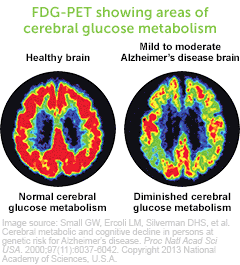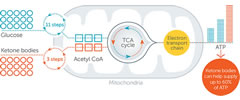DCGM is a crucial aspect of Alzheimer’s disease that cannot be addressed with drug treatments1,2
The brain is one of the most metabolically active organs in the body and it relies on glucose for fuel. This dependence on glucose puts the brain at risk if the supply of glucose is interrupted, or if cerebral glucose metabolism becomes defective.3
Extensive evidence from three decades of research has established that diminished cerebral glucose metabolism (DCGM, also known as glucose hypometabolism), is a key underlying pathology in the Alzheimer’s brain.1 In Alzheimer’s disease, DCGM occurs early, is region-specific, and correlates with other clinical features.4-13

Diminished cerebral glucose metabolism in Alzheimer’s disease9,10
Find out more about one of the earliest brain changes that occurs in Alzheimer’s disease.




